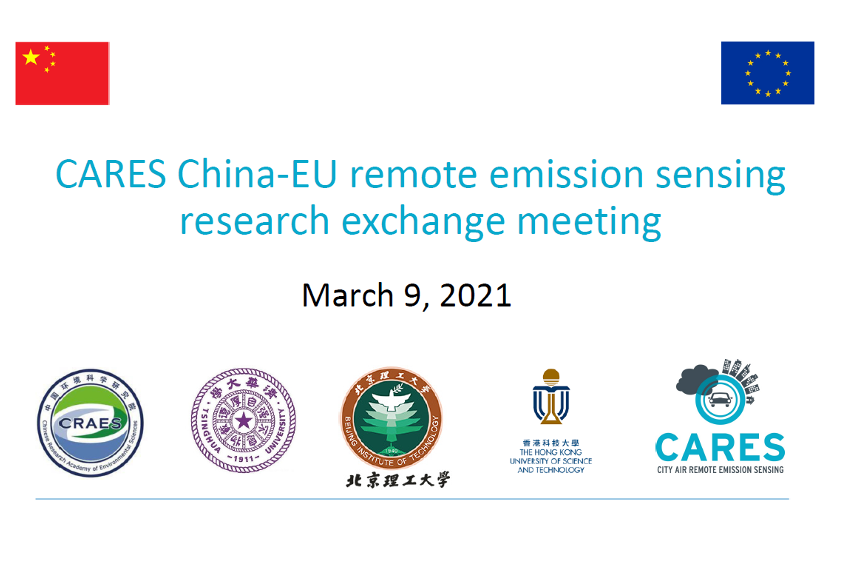China-EU remote emission sensing research exchange meeting
March 21, 2021

On March 9, 2021, a meeting was held between CARES European research partners and the three international research partners of CARES from China. The purpose of the meeting was to exchange the results and experiences of recent RES hardware and software development occurring both in Europe and China.
Preliminary results from the CARES “sister project” in China, funded by the Ministry of Science and Technology (MOST), were presented by researchers from CRAES-VECC, Tsinghua University and Beijing Institute of Technology, followed by presentations of the results from recent RES research activities carried out by Hong Kong University of Science and Technology. Being less affected by COVID travel restrictions than the CARES project, these projects have already carried out significant work on the RES hardware development (commercial RES, plume chasing RES and micro station gas and particle sensors), including thorough testing and validation exercises at both designated test tracks and in real-world settings. Next are the city demonstration measurements will be conducted in the near future.
The CARES European research partners presented the progress of the development of the RES plume chase technology by the University of Heidelberg/Airyx and the development of the RES point sampling technology by Graz University of Technology (TUG). The plume chase development work has focused on optimizing the positions of the plume sampling inlets and to substantially improve the user friendliness of the operation of the plume chase instrument. This has proven to be successful, as non-expert staff were able to carry out plume chase measurement campaigns independently. The low-cost sensors of TUG for measuring particle number (PN) and black carbon (soot particles) have also made significant progress in 2020.
Approximately 25 researchers attended the meeting.
Presentations:
Progress of RES research activities within the MOST-project:
o Remote sensing hardware and software development, Lijun Hao, Beijing Institute of Technology
o Remote sensing hardware and software development, Shaojun Zhang, Tsinghua University
o RES techniques evaluation and their application for policy making, Dongbin Wang, Tsinghua University
o RES techniques evaluation and their application for policy making, Miao Tian, CRAES-VECC
o Supervision platform building and city demonstration, Miao Tian, CRAES-VECC
Progress of RES research activities at HKUST:
o Zhi Ning, Mengyan Chu, and Qin Xiaoliang, Hong Kong University of Science and Technology
Progress of RES research activities within the CARES project:
o Development of the CARES plume chase technology, Denis Poehler, University of Heidelberg/Airyx
o Development of the CARES point sampling technology, Markus Knoll, Graz University of Technology

